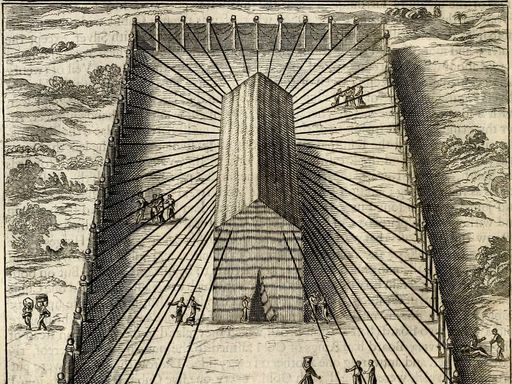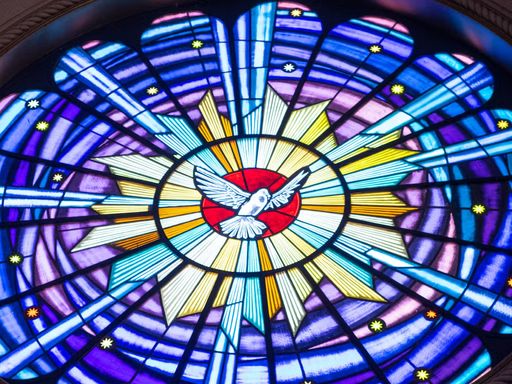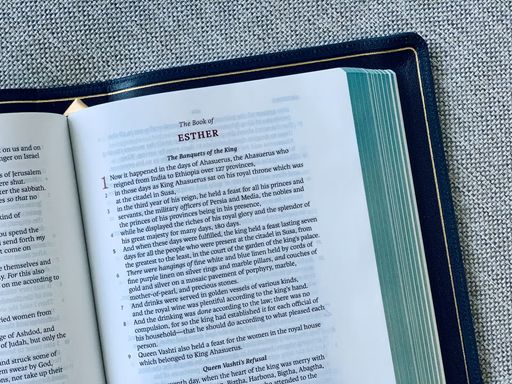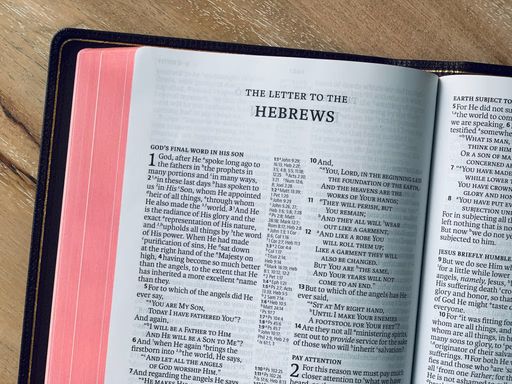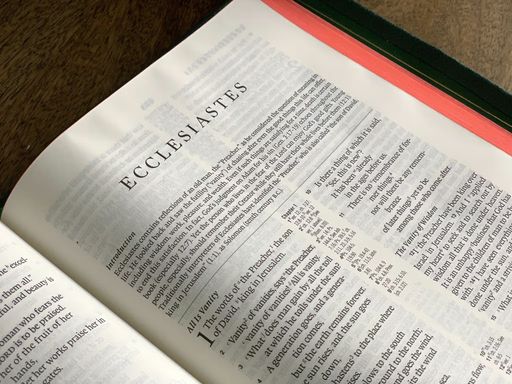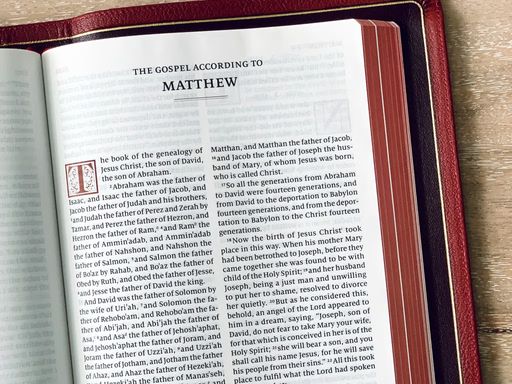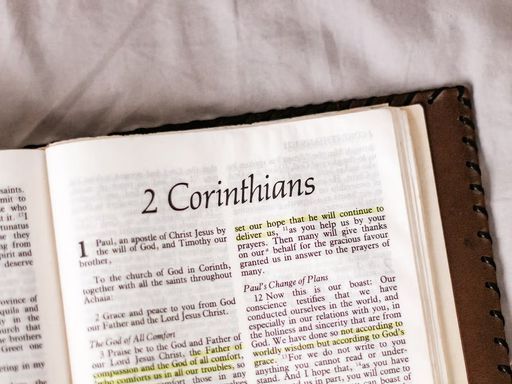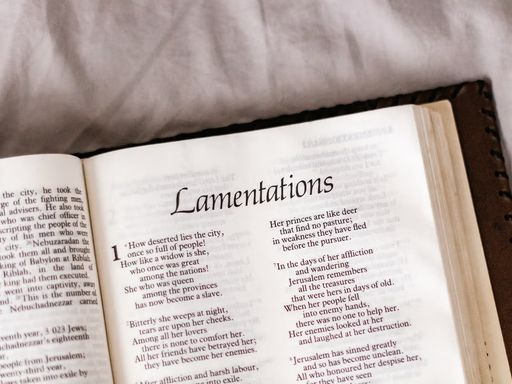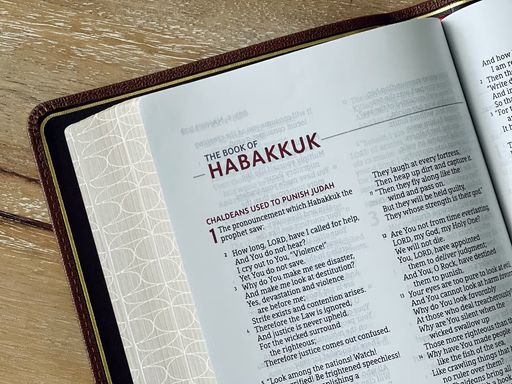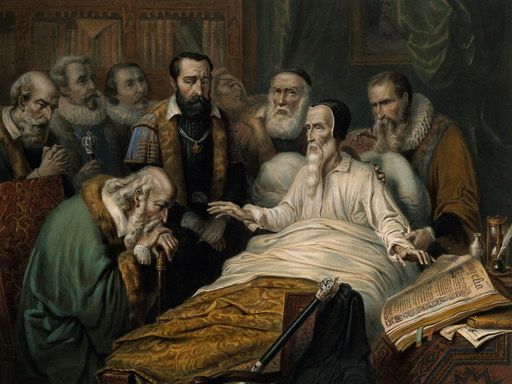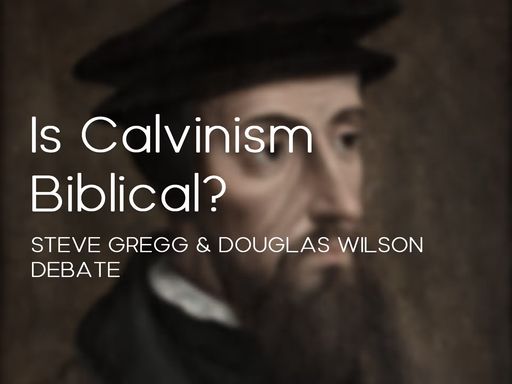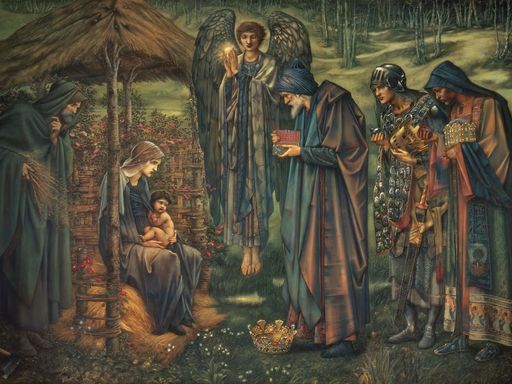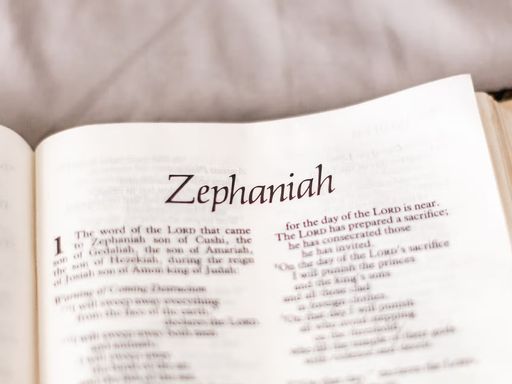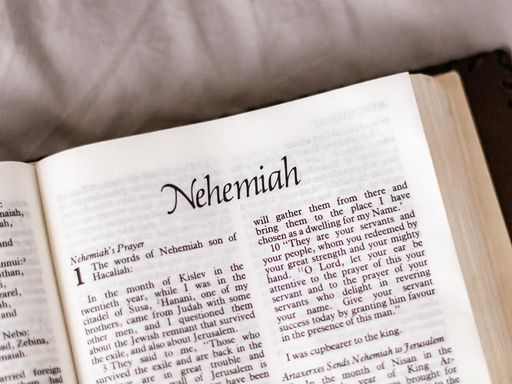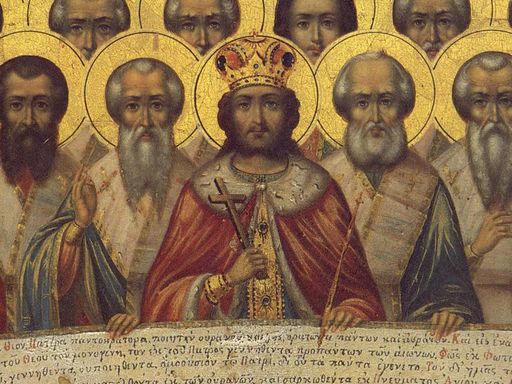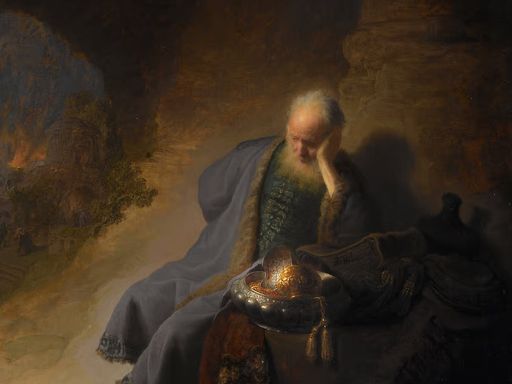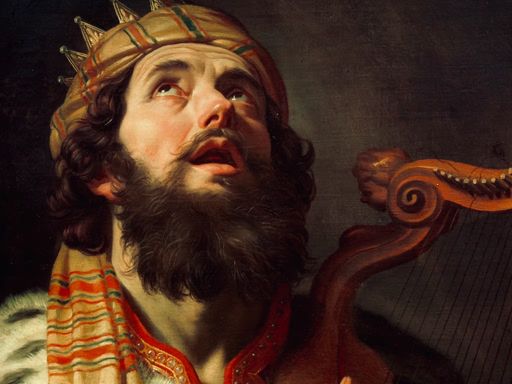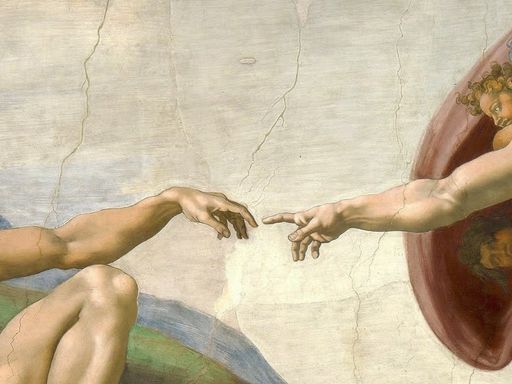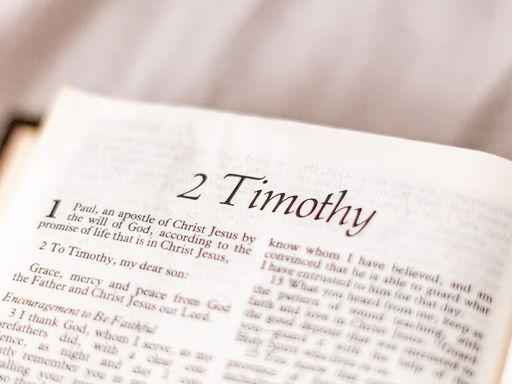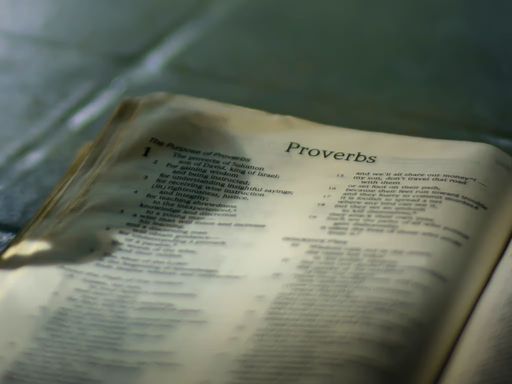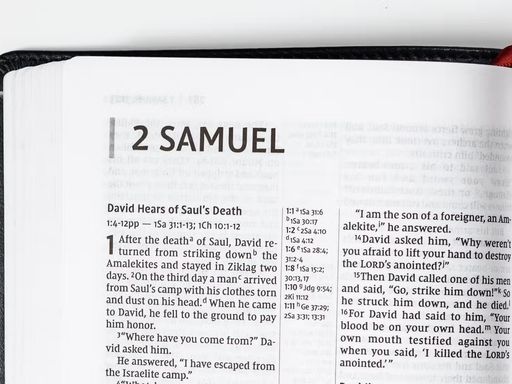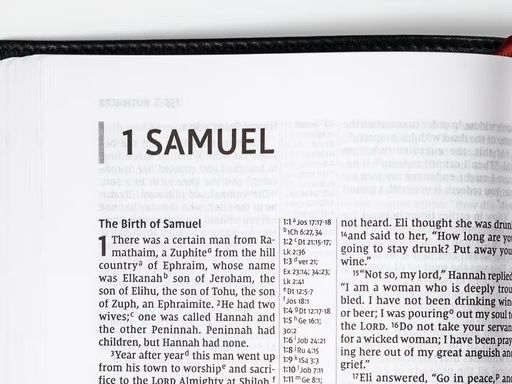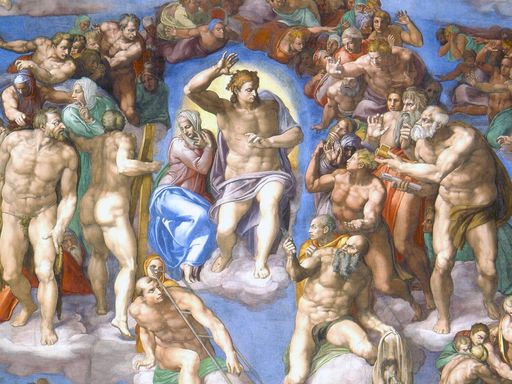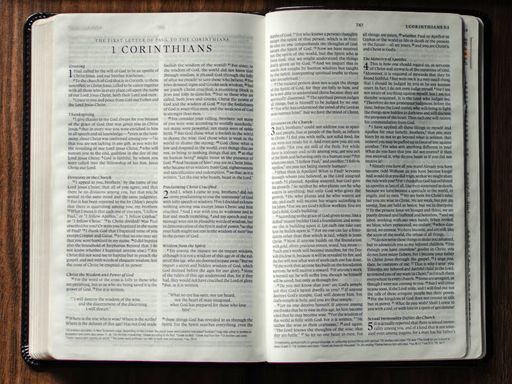
Gospel of Matthew
Steve Gregg
Spanning 72 hours of teaching, Steve Gregg's verse by verse teaching through the Gospel of Matthew provides a thorough examination of Jesus' life and teachings. The series covers the entire Gospel of Matthew, from the birth of Jesus to his crucifixion and resurrection.
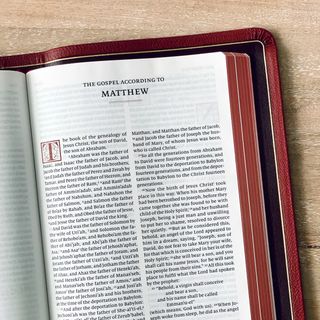
Matthew Introduction (Part 1)
Steve Gregg introduces the study of the life and teachings of Jesus Christ, acknowledging that the church today does not always agree with his message. He asserts that being a Christian means following Jesus and committing to obey and follow his example. Gregg notes that the historical study of the

Matthew Introduction (Part 2)
Steve Gregg discusses the importance of acknowledging the truth of the Gospels and the life of Jesus, despite potential doubts and skepticism. He acknowledges the potential disbelief in miracles but highlights that nothing in the Gospels is impossible to believe or historically inaccurate. Gregg enc

Matthew Introduction (Part 3)
In this introduction to the Gospel of Matthew, Steve Gregg discusses the authorship, composition, and style of the first book of the New Testament. He notes that the book is likely written by the disciple Matthew, a former tax collector who was called by Jesus to follow him. Gregg also highlights Ma

Matthew 1:1 - 1:17
In this teaching, Steve Gregg dives into the importance of Jesus' genealogy in Matthew 1:1-17. He highlights how the lineage of Jesus was traced back to Abraham and David, the two pivotal figures in Jewish history, and how this fulfilled prophecy in the Old Testament. Gregg also notes the inclusion

Matthew 1:18 - 1:25
In this discussion, Steve Gregg explores the end portion of Matthew chapter 1, beginning with the genealogy of Joseph, Jesus' legal father. Joseph's relationship with Mary is also examined, along with the circumstances surrounding her pregnancy. The discussion highlights the significance of Jesus' n

Matthew 2:1 - 2:3
In this discussion, Steve Gregg analyzes the second chapter of Matthew and the fulfillment of prophecy regarding the birth of Jesus. Gregg suggests that the expectations of the Jewish people regarding the arrival of their Messiah infected the Gentiles, leading to the ruling class of Gentile nations

Matthew 2:4 - 2:15
In this study of Matthew chapter 2 verses 4-15, Steve Gregg explores the prophecy of the birthplace of the Messiah in the book of Micah, which was fulfilled by Jesus as a descendant of David. The wise men from the east who saw the phenomenon in the heavens were likely astrologers who interpreted wha

Matthew 2:16 - 2:23
In this discussion, Steve Gregg delves into the New Testament's Matthew 2, continuing the story of the birth of Jesus. Gregg notes the historicity of Bethlehem as the prophesized birthplace of the Messiah and sheds light on the geographical and historical context of the time period. He also highligh

Matthew 3:1 - 3:6
In this discussion, Steve Gregg examines Matthew chapter 3 and its account of John the Baptist's ministry prior to Jesus' public ministry. Gregg notes that John's call to repentance and preparation of hearts for the Messiah's coming was predicted in Old Testament prophecy. He also highlights the use

Matthew 3:7 - 3:12
In Matthew 3:7-12, Steve Gregg discusses John the Baptist's role as the forerunner to prepare for the coming of Christ. The Sadducees and Pharisees had differing views, with the former collaborating with Roman oppressors and the latter resisting them. Gregg explains that the Jewish people and their

Matthew 3:13 - 3:17
In this discourse, Steve Gregg provides an exposition of Matthew 3:13-17, where Jesus was baptized by John the Baptist. Gregg highlights the significance of baptism as a commandment from Christ, as well as its symbolism of being buried and resurrected with Christ. He also notes John's testimony of J

Matthew 4:1 - 4:11 Introduction
In this teaching, Steve Gregg examines the story of Jesus' temptation in the wilderness from Matthew 4:1-11. Jesus fasted for 40 days before being confronted by Satan, who attempted to entice Jesus to sin. Gregg emphasizes the importance of correctly understanding and applying scripture, citing Psal

Matthew 4:1 - 4:17
In this study of Matthew 4:1 - 4:17, Steve Gregg discusses Jesus' encounter with the devil in the wilderness, emphasizing how Jesus overcame temptations related to the three kinds of lusts: flesh, eyes, and pride of life. Gregg explains that Jesus' use of such terms as "good eye" and "pride of life"

Matthew 4:18 - 4:25
In Matthew 4:18-25, Jesus meets Andrew and Simon Peter while they were fishing and tells them to follow him, promising to make them "fishers of men." This story illustrates how seemingly unqualified individuals, like fishermen, can be called to serve in religious ministry. Jesus did not pay a salary

Matthew 5:1 - 5:2 Sermon on the Mount Introduction
In this lesson, the speaker delves into the Sermon on the Mount as outlined in Matthew 5-7, noting that it is a collection of Jesus' teachings largely clustered into five major discourses. The focus of the discussion centers around the Beatitudes, which are spiritual rather than material in nature.

Matthew 5.3 - 1st Beatitude
In this presentation, Steve Gregg discusses the first Beatitude found in Matthew 5:3. He explains that when Jesus said "Blessed are the poor in spirit," he meant that it is enviable to evaluate oneself in terms of spirituality and righteousness and see oneself as having nothing to congratulate onese

Matthew 5:4 - 2nd Beatitude
In Matthew 5:4, Jesus teaches his followers to be "blessed" when they mourn. This may seem like an odd concept, as mourning is typically associated with feelings of sorrow and discomfort. However, the speaker suggests that there is a deeper meaning to this teaching. Mourning can lead to repentance f

Matthew 5:5 - 3rd Beatitude
In Matthew 5, the third Beatitude states "Blessed are the meek, for they shall inherit the earth." While some translations use "gentle" instead of "meek," this word implies strength and control. It means that rather than pushing forward our own plans and defending our own rights, we should defer to

Matthew 5:6 - 4th Beatitude
In this discourse, Steve Gregg highlights the fourth Beatitude of Jesus, "Blessed are those who hunger and thirst for righteousness, for they shall be filled." He emphasizes that this hunger and thirst are not just for material needs, but also for something spiritual, and those who are continually s

Matthew 5:7 - 5th Beatitude
In this talk, Steve Gregg discusses the fifth beatitude from Matthew 5, focusing on the theme of compassion. He emphasizes the importance of being moved by compassion towards others, as this is a key aspect of Jesus' teachings. Gregg also explains that how we treat others will ultimately be measured

Matthew 5:8 - 6th Beatitude
In this discourse, Steve Gregg provides insights into the sixth Beatitude as recorded in Matthew 5:8. The verse emphasizes the purity of heart necessary to see God, and Gregg emphasizes that seeing God may not necessarily involve a literal sighting, but rather a clear vision of Him. He goes on to ex

Matthew 5:9 - 7th Beatitude
In Matthew 5:9, Jesus says that blessed are the peacemakers, for they shall be called the sons of God. The implication is that only those who practice peace-making will be called sons of God. A peacemaker is the opposite of someone who sows discord among brethren, and as ambassadors of Christ, we ar

Matthew 5:10 - 8th Beatitude
In this discussion, Steve Gregg explores the 8 Beatitudes outlined in Matthew 5 and explains how they encapsulate the values of the Kingdom of God. He emphasizes the importance of rejecting the values of the world and rejoicing in persecution for righteousness' sake, as it can be a positive force th

Matthew 5:11 - 5:13
Steve Gregg continues his analysis of the Sermon on the Mount in Matthew chapter 5, focusing on verses 11-13. He emphasizes that the Beatitudes describe the character of a citizen in the kingdom of God and that faith must be accompanied by a certain state of mind. Gregg also explores the metaphor of

Matthew 5:14 - 5:16
In this talk, Steve Gregg continues his study of the Sermon on the Mount in Matthew 5, focusing on verses 14-16. He explains that as Christians, we are the light of the world and are called to be salt to preserve and impact the spiritual and moral conditions of the earth. Gregg emphasizes that being

Matthew 5:17 - 5:20 (Part 1)
In this portion of his discourse on the Sermon on the Mount, Steve Gregg discusses the often-misunderstood passage of Matthew 5:17-20. He emphasizes that the loyalty and reverence for the law and prophets in the Old Testament scriptures are tantamount to the reverence for God himself. Gregg points o

Matthew 5:17 - 5:20 (Part 2)
Steve Gregg analyzes Matthew 5:17-20 in this discussion, presenting an interpretation of Jesus' words regarding the significance of the Law and the prophets. According to Gregg, Jesus did not come to abolish the Law but to fulfill it. While the ceremonial and ritual modes of the Law were transformed

Matthew 5:17 - 5:20 (Part 3)
In this discussion, Steve Gregg delves into the weighty matters of the Law and how Jesus went beyond it. While the Pharisees focused on outward displays of righteousness, Jesus taught that love was the most important aspect of the Law. Gregg emphasizes that justice, mercy, and faithfulness are vital

Matthew 5:21 - 5:26
Steve Gregg discusses Jesus' interpretation of the law of Moses in Matthew 5:21-26. Jesus provides six examples to illustrate God's concern for giving the law to learn about loving, just, merciful, and faithful dealings. Jesus also emphasizes the importance of settling disputes with our brothers and

Matthew 5:27 - 5:30
Steve Gregg discusses the commandment, "You shall not commit adultery," from Matthew chapter 5 of the Sermon on the Mount. Gregg argues that looking at a woman with lustful intent is already committing adultery in the heart, and that this violation of someone's rights is an injustice. He explains th

Matthew 5:21 - 5:30 (Part 1)
Steve Gregg explains the textual meaning of Matthew 5:21-30 in part one of his sermon regarding The Sermon on The Mount. He emphasizes the importance of avoiding sin in order to enter the Kingdom of God, as Jesus warned that even minor infractions can lead to dire consequences. Gregg also stresses t

Matthew 5:21 - 5:30 (Part 2)
In this continuation of his studies on Matthew 5:21-30, Steve Gregg emphasizes the importance of following Jesus' teachings rather than relying solely on the belief in salvation by grace. Gregg argues that rejecting Christ and His teachings results in worse punishment than the rejection of Moses' la

Matthew 5:31 - 5:32
In this lesson on Matthew 5:31-32, Steve Gregg discusses the importance of honesty and fulfilling promises to God. He emphasizes the seriousness of the marriage commitment as stated in Matthew 19:9 and advises against using adultery as a justification for divorce and remarriage. While acknowledging

Matthew 5:34 - 5:37
In Matthew 5:34 - 5:37, Jesus teaches about righteousness and the law. He gives two illustrations of the law showing concern for justice, specifically relating to divorce and the importance of keeping vows. The speaker explains that while there is nothing inherently wrong with taking an oath in the

Matthew 5:38 - 5:42
In this segment, Steve Gregg discusses Matthew 5:38-42, where Jesus provides examples of how the law applies to his disciples. Jesus explains how justice, faithfulness, and mercy should be practiced based on God's previous teachings. He emphasizes the importance of not retaliating against those who

Matthew 5:43 - 5:48
In this talk, Steve Gregg delves into Matthew 5:43-48, where Jesus illustrates God's attitude towards the law and righteousness. Jesus challenges the common belief of hating enemies and emphasizes the importance of loving one's enemies, citing the example of a Samaritan who helped a Jewish man. Greg

Matthew 6:1 - 6:4 Introduction
In this lesson on Matthew 6:1-4, Steve Gregg discusses the true meaning of righteousness and the importance of giving, praying, and fasting. He highlights the danger of seeking rewards for religious acts in the ways that the carnal flesh appreciates, rather than seeking a reward from God alone. Inst

Matthew 6:1 - 6:4
In this talk, Steve Gregg focuses on Matthew 6:1-4 and the importance of giving to the poor without seeking recognition or admiration. Jesus warns against performing charitable deeds for the sake of others' opinions, as this will result in no reward from God. He emphasizes the need for giving genero

Matthew 6:5 - 6:8
In a discussion of the Sermon on the Mount, Steve Gregg examines Jesus' instructions on prayer in Matthew 6:5-8. Jesus warns against hypocrisy and suggests that public prayer should not be used as a platform for attention-seeking. Gregg suggests that while Jesus emphasizes sincerity and personal con

Matthew 6:9 - 6:13 (Part 1)
In this talk, Steve Gregg continues his exploration of the Sermon on the Mount and focuses on the topic of prayer. He explains that prayer is requesting something known to God with supplication and thanksgiving, but emphasizes that God decides when to speak and answer. He also discusses the traditio

Matthew 6:9 - 6:13 (Part 2)
In this discussion, Steve Gregg examines the famous prayer that Jesus taught his disciples to pray, found in Matthew 6:9-13. Gregg discusses the phrase "Our Father in heaven," pointing out that Christians can address their prayers to either the Father or Jesus, as long as they pray in Jesus' name. H

Matthew 6:9 - 6:13 (Part 3)
In this exploration of Matthew 6:9-13, Steve Gregg emphasizes the importance of understanding the main focus of prayer as the advancement and expansion of God's kingdom, rather than just praying for personal concerns. He reminds us that while Jesus introduced the kingdom to the world, there are stil

Matthew 6:9 - 6:10 (Part 4)
In this lesson, Steve Gregg continues his teachings on the Lord's Prayer portion of Chapter 6 of the Gospel of Matthew. He emphasizes the idea that as a Christian disciple, one does not own oneself or one's possessions, and that one should focus on eternal matters and the will of God. While it is ac

Matthew 6:11 - 6:12 (Part 5)
In this segment, Steve Gregg discusses the line "Give us this day our daily bread" from The Lord's Prayer, emphasizing that it encourages us to trust in God for our basic needs. He goes on to explain that we should not accumulate earthly treasures, but instead trust that God will provide for us on a

Matthew 6:13 - 6:15 (Part 6)
Steve Gregg provides insights on the last petition of the Lord's Prayer found in Matthew 6:13-15. He emphasizes the importance of asking for God's help in delivering us from temptation, even when facing difficult trials where the desire to commit a sin is strong. He encourages Christians to grow str

Matthew 6:16 - 6:18
Steve Gregg teaches about Matthew 6:16-18, a section within the Sermon on the Mount where Jesus teaches his disciples about piety and religiosity. In this passage, Jesus outlines fasting as a religious requirement of Judaism and stresses the importance of doing it with the right attitude, without se

Matthew 6:19 - 6:21 (Part 1)
In this segment, Steve Gregg brings us to Matthew 6:19 where Jesus advises against focusing on earthly treasures, which can easily be destroyed or stolen, but rather on laying up treasure in heaven, where it is secure. Gregg shares his own experience of choosing to live in poverty and reads from the

Matthew 6:19 - 6:21 (Part 2)
In this talk, Steve Gregg continues his discussion on Matthew 6, emphasizing the importance of not laying up treasures on earth. He states that we cannot take these worldly possessions with us, and encourages listeners to give to the poor and those in need. Gregg also reminds his audience that hard

Matthew 6:21 - 6:24
Steve Gregg holds that in the "Sermon on the Mount," Jesus spoke in idioms familiar to his Jewish listeners to emphasize that God considers a person's heart condition more important than their material worth. He cites Proverbs to illustrate that the person with the generous eye will be blessed by Go

Matthew 6:25 - 6:34
In this lecture, Steve Gregg discusses Matthew 6:25-34 and the issue of anxiety. Jesus instructs his followers to not worry about food, clothing, or tomorrow, arguing that worrying will not make things better. Gregg reminds his listeners that God has already done remarkable and difficult things for

Matthew 7:1 - 7:5
In this discourse, Steve Gregg sheds light on the misconstrued scripture verse Matthew 7:1-5. He clarifies that the verse encourages us not to judge others based on their appearance, but rather to hold ourselves to the same standard. He highlights the importance of making moral calls without being h

Matthew 7:6
Steve Gregg discusses the biblical verse Matthew 7:6 and suggests that Jesus is using metaphorical language rather than intending for it to be taken literally. The verse urges people not to give holy dogs or cast pearls before swine, implying that those with no interest in spiritual truth should not

Matthew 7:7 - 7:12
Steve Gregg discusses Matthew 7:7-12, emphasizing the importance of praying according to God's will. He notes that asking is a condition for receiving, and states that prayer is not a magic wand to be used for every circumstance. Gregg concludes that the Sermon on the Mount amplifies the principle o

Matthew 7:13 - 7:14
In this talk, Steve Gregg discusses the concept of grace and its connection to faith in the Bible. He cites Matthew 7:13-14 and emphasizes the importance of striving to enter the narrow gate, which requires commitment and drive. While some may think they are following Jesus half-heartedly, Gregg sug

Matthew 7:15 - 7:20
In this teaching, Steve Gregg discusses the dangers of false teachers and prophets in the church. He points out that just because someone claims to be a Christian and speaks biblical language, it doesn't necessarily make them trustworthy. Jesus warns us to observe the fruits of their teachings, and

Matthew 7:21 - 7:23
In this talk, Steve Gregg discusses the stern warnings given by Jesus to his disciples in Matthew 7:21-23. Jesus warns that not everyone who calls him "Lord" will enter the Kingdom of Heaven, but only those who follow the narrow path and are obedient to God. Gregg emphasizes that these warnings appl

Matthew 7:24 - 7:29
In this talk, Steve Gregg delves into the deeper and weighty aspects of the house-on-a-rock versus the house-on-sand dichotomy that many are familiar with from Matthew 7. He discusses the importance of laying a strong foundation in one's life by living according to the teachings of Jesus and not was

Matthew 8:1 - 8:4
In this passage, Steve Gregg discusses the story of Jesus healing a man with leprosy in Matthew 8:1-4. Leprosy was a disease that was thought to symbolize sin in the spiritual realm, and the man's healing was seen as a sign of his restored relationship with God. Gregg notes that while healing was co

Matthew 8:5 - 8:13
In this passage, Steve Gregg tells the story of a centurion who asks for Jesus' help in healing his sick servant. Despite being a Gentile, the centurion displays remarkable humility and faith in Jesus' ability to heal. Jesus is amazed by the centurion's faith and uses this as an opportunity to teach

Matthew 8:14 - 8:17
In this discussion of Matthew 8:14-17, Steve Gregg examines the story of Peter's sick mother-in-law and Jesus' healing of her. He emphasizes that while this event did not draw a large crowd like some of Jesus' other miracles, it is significant because it demonstrates Jesus' compassion and willingnes

Matthew 8:18 - 8:22
In this lesson, Steve Gregg continues his study of the life of Jesus Christ in Matthew 8:18-22. Jesus tells his followers that they should learn from him and find rest for their souls. He also points out that his ministry is not politically motivated and he does not seek to attract the Pharisees. De

Matthew 8:23 - 8:27
In this analysis of Matthew 8:23-8:27, Steve Gregg explores the story of Jesus calming a storm while on a boat with his disciples. The story illustrates the true identity of Jesus, though not immediately understood by his disciples. As Gregg notes, Jesus' power to calm the storm with a rebuke demons

Matthew 8:28 - 8:34
In this passage, Steve Gregg discusses the disparity in the accounts of the demon-possessed men mentioned in Matthew 8:28-34. He clarifies that although one gospel writer mentions one man while another mentions two, it is likely that there were indeed two demon-possessed men. Gregg also addresses th

Matthew 9:1 - 9:8
In this segment, Steve Gregg interprets Matthew 9:1-8 where Jesus forgives a paralyzed man's sins. Gregg notes that Jesus' statement, "your sins are forgiven," did not only pertain to the man's sin against Jesus personally, but rather all sins he had committed against God. Jesus' ability to forgive

Matthew 9:9 - 9:13
In this passage, Steve Gregg discusses the story of Matthew, a tax collector who becomes a follower of Jesus. Gregg notes that tax collectors were widely disliked by the Jewish community for their association with the Roman government and their perceived greed. However, Jesus approaches Matthew and

Matthew 9:14 - 9:15
In this lecture, Steve Gregg explores Matthew 9:14-15, where Jesus is seen addressing the disciples of John the Baptist. Gregg notes the tendency within human nature to be critical and judgmental of others who do not follow the same religious calling; however, he emphasizes that self-denial does not

Matthew 9:16 - 9:17
In Matthew 9:16-17, Jesus uses the analogy of putting new wine into old wineskins to explain that his teachings cannot be contained within the old rigid structures of religion. The arrival of Jesus and the new covenant marked a significant departure from traditional religious practices and standards

Matthew 9:18 - 9:26
Steve Gregg explores Matthew 9:18-26 in his lecture, highlighting Jesus' miraculous healing of a ruler's daughter and a woman suffering from twelve years of ailment. The compressed story emphasizes Jesus' ability to heal and restore faith in those who believe in his power. Gregg notes the importance

Matthew 9:27 - 9:34
Steve Gregg provides a biblical analysis of Matthew 9:27-34 and how it relates to life and faith in Jesus Christ. He discusses the various healings that Jesus performed and how they required faith from those seeking healing. Gregg notes that the power of God works through Jesus' name, but Jesus did

Matthew 9:35 - 9:38
In this passage from Matthew 9:35-9:38, Steve Gregg discusses the teachings of Jesus Christ and how they relate to preaching the gospel kingdom. He emphasizes the importance of repentance and belief in the gospel, as well as following the lordship of Jesus as the means to experience the kingdom of G

Matthew 10:1 - 10:4
In this discussion, Steve Gregg delves into the list of the twelve apostles as mentioned in Matthew 10:1-4 and Luke 6:12-16. He notes that while there are some name discrepancies, the first four apostles, Peter, James, John, and Andrew, are the most well-known. The speaker also explains the politica

Matthew 10:5 - 10:10
Steve Gregg discusses Matthew chapter 10 where Jesus sends out his disciples to freely heal the sick, cleanse the lepers, raise the dead, and cast out demons. Gregg explains that although it may take weeks or be protracted, the people need to be prepared to have a chance to enter the kingdom of God.

Matthew 10:11 - 10:15
Steve Gregg continues his exposition of Matthew 10, where Jesus sends out his twelve apostles on their first preaching mission without him. Gregg discusses how the apostles were to greet households when they arrived, and how they were not to charge for their services. He also touches on how the apos

Matthew 10:16 - 10:20 (Part 1)
In this talk, Steve Gregg examines Matthew 10:16-20 and how it relates to the larger context of Matthew 10. He highlights the importance of Christians being like sheep among wolves, relying on the Holy Spirit for wisdom and guidance. Gregg cautions against an isolationist approach to the world and i

Matthew 10:16 - 10:20 (Part 2)
In a discussion of Matthew 10:16-20, Steve Gregg reflects on Jesus' warnings to his disciples about the opposition they would face in their ministry. He notes that Christ expected his followers to live wisely and make good decisions about their health and safety, though ultimately they should be wil

Matthew 10:21 - 10:25
Steve Gregg discusses Matthew chapter 10, where Jesus gives additional instructions to his disciples. Jesus tells his disciples that they will face persecution and hostility from even their own families for their new identity as followers of Christ. However, Jesus also teaches that total loyalty and

Matthew 10:26 - 10:31
In this talk, Steve Gregg delves into Matthew 10:26-31, where Jesus instructs his disciples not to fear those who persecute them. Gregg notes that while Christians believe that Jesus is referring to the devil, it's important not to fear persecution, as God is on their side. He also discusses the con

Matthew 10:32 - 10:33
Steve Gregg discusses Matthew 10:32-33, where Jesus says that whoever confesses Him before men will be confessed before the Father in heaven. Gregg emphasizes the importance of denying oneself and becoming a follower of Jesus, rather than being part of a routine initiation or religious system. He al

Matthew 10:34 - 10:39
In this discussion, Steve Gregg provides his interpretation of Matthew 10:34, where Jesus says he did not come to bring peace but a sword. Gregg clarifies that Jesus was not advocating for violence or leading a revolution against Rome, despite the misinterpretation that arose during early Christiani

Matthew 10:40 - 10:42
In this discussion of Matthew 10, Steve Gregg explains that receiving Jesus is equivalent to receiving God. Rejecting Christ means rejecting His authority, not just His teachings. Gregg suggests that different rewards exist for different levels of service, but it is not our place to judge who will r

Matthew 11:1 - 11:6: John the Baptist
Steve Gregg reflects on the passage in Matthew 11:1-6, where John the Baptist asks if Jesus is the Messiah. While John may have had doubts, Gregg notes that it's not uncommon for believers to have their faith tested at times. Gregg encourages those struggling with doubts to seek answers in Scripture

Matthew 11:7 - 11:10
In Matthew 11:7-10, Jesus speaks about John the Baptist, who was not a typical religious leader. John wore rough clothing made of camel's hair and lived in the wilderness, eating locusts and wild honey. Jesus highlights that John's ministry was characterized by a lack of doubt and a violent force to

Matthew 11:11
In this talk, Steve Gregg discusses the meaning behind Matthew 11:11 and the contextual statements regarding Jesus, John the Baptist, and the kingdom of God. He emphasizes the humility and sacrifice of Jesus, who willingly gave his life as a ransom for many. Gregg also explores the significance of J

Matthew 11:12
In this content, Steve Gregg discusses Matthew 11:12 and the violent opposition that Jesus and his followers encountered. Gregg states that the word "violent" in this passage refers to those who are forceful and determined to enter the kingdom, even if it means facing opposition. He further explains

Matthew 11:12 - 11:15
In this session, Steve Gregg discusses the higher rank of Jesus compared to John the Baptist, despite John being a notable prophet. He addresses a problem raised in John chapter 1, where John the Baptist gained attention early on in his ministry. Steve explains that God's intention in the Bible's li

Matthew 11:16 - 11:19
In this passage, Jesus addresses the mindset of those who find fault with both John the Baptist and Himself, regardless of their differences in lifestyle. Jesus suggests that these individuals are simply making excuses to avoid responding to God, rather than having a genuine objection to either John

Matthew 11:20 - 11:24
In Matthew 11:20-24, Jesus rebukes the cities of Corazin and Bethsaida for not repenting after witnessing his miracles. The speaker, Steve Gregg, explains that repentance means a change of mind and direction in one's life. Failing to repent after being given the opportunity puts a grave responsibili

Matthew 11:25 - 11:27
In this exegesis of Matthew 11:25-27, Steve Gregg emphasizes the importance of humility in seeking God's truth. He highlights the danger of forming opinions based on intellect and reputation rather than biblical evidence. According to Gregg, those who possess a childlike openness and teachability ar

Matthew 11:28 - 11:30
In Matthew 11:28-30, Jesus invites those who are weary and burdened to come to Him for rest. The speaker explains that no one fully understands the nature of God and man in Christ. However, seeking and growing in knowledge of Jesus, loving and following Him is what makes someone a true disciple. Tho

Matthew 12:1 - 12:8
In this passage, Steve Gregg examines the controversies raised by Jesus' conduct on the Sabbath, and argues that Jesus' actions were motivated by a focus on moral issues rather than ritualism. Drawing on the story of David, Gregg makes the case that it is more important to be merciful and do what Go

Matthew 12:9 - 12:14
In this study of Matthew 12 by Steve Gregg, he explains how the Sabbath is not regarded as a moral law in the Old Testament but rather a ceremonial law. Compassion overrides the Sabbath law, and Jesus defends his disciples' actions by likening it to what David did. The story of the Sabbath conflict

Matthew 12:15 - 12:21
Steve Gregg explores the healing ministry of Jesus in Matthew 12:15-21. He believes that Jesus' healing power is available today, but we have to believe in what the Word of God says, not merely what we want it to say. Gregg notes that although Jesus healed many people, there were instances in which

Matthew 12:22
In this passage from the Gospel of Matthew, Steve Gregg addresses the concept of demon possession as a real phenomenon throughout Scripture but cautions against assuming that all physical disabilities are caused by demons. He points out that the majority of cases of disabilities in Scripture are not

Matthew 12:22 - 12:28
Steve Gregg discusses Matthew 12:22-28 where Jewish leaders questioned the source of Jesus' power, suggesting he was operating under the power of Satan. However, there were undeniable supernatural acts occurring that suggested Jesus was the Messiah. Gregg notes that Jesus did not necessarily know ev

Matthew 12:29 - 12:30
In this explanation of Matthew 12:29-30, Steve Gregg discusses the power of the kingdom of God and the Holy Spirit. The spiritual reality of the kingdom cannot be observed in a physical sense, and Nicodemus was told that one must be born again and born of spirit to see it. Jesus operated with the po

Matthew 12:31 - 12:32
In this discussion, Steve Gregg examines the notion of an "unpardonable sin" mentioned in Matthew 12:31-32. He suggests that the Bible teaches that there is such a sin, which occurs when a person's heart becomes spiritually numb and devoid of any concern for spiritual matters, rendering them unable

Matthew 12:33 - 12:37
In this discussion, Steve Gregg delves into the teachings of Jesus in Matthew 12:33-37. He highlights how Jesus' words about good and evil treasure bringing forth good and evil deeds align with other teachings in the Bible. Gregg emphasizes the importance of understanding that one's words and deeds

Matthew 12:38 - 12:42
In this talk, Steve Gregg discusses a passage from Matthew 12 where scribes and Pharisees ask Jesus to perform a sign. He then shares the story of Jonah to highlight the spiritual receptiveness of Gentiles as compared to Jews. Gregg also clarifies the misconception around the timing of Jesus' resurr

Matthew 12:43 - 12:45
In this discussion, Steve Gregg delves into Matthew 12:43-45 and sheds light on the subject of demons. While acknowledging that the passage may not yield much information about demons, Steve emphasizes that Jesus' main point is not to be missed. The passage uses imagery of a person's body and home t

Matthew 12:46 - 12:50
In this session, Steve Gregg discusses Matthew 12:46-12:50, where Jesus refuses to see his mother and brothers. Gregg explains that although some may question Jesus' behavior, as he is the Son of God and can do no wrong, it is important to understand the cultural context of the time. He also touches

Matthew 13:1 - 13:9
In this discourse, Steve Gregg delves into the parables of Matthew 13, highlighting the importance of understanding their spiritual implications beyond their superficial meaning. He stresses that parables are not mere allegories but true stories, intentionally designed by Jesus to illustrate importa

Matthew 13:10 - 13:17
In Matthew 13:10-17, Jesus explains to his disciples that the parables he tells are meant to reveal the mysteries of the spiritual kingdom to those who have ears to hear. He warns them not to cast their pearls before swine, or those without the understanding to receive the message, but to instead re

Matthew 13:18 - 13:23
In this insightful presentation, Steve Gregg discusses the parables of Jesus found in Matthew 13:18-23. He explains that while some people may not comprehend the message of the kingdom, others may understand it superficially, yet not be truly converted. Those who are distracted by worldly possession

Matthew 13:24 - 13:30, 13:36 - 13:43
Steve Gregg discusses the parable of the wheat and tares found in Matthew 13. Jesus compares the kingdom of heaven to a field where good seed is sown but an enemy comes and sows tares among the wheat. When the servants ask the master if they should go and pull up the tares, the master replies to let

Matthew 13:31 - 13:33
In Matthew 13:31-33, Jesus uses two parables to show how the Kingdom of God will advance without the use of physical force. The first parable compares the Kingdom to a mustard seed, which may be small at first but grows into a tree that provides a safe haven for birds. The second parable compares th

Matthew 13:44 - 13:46
Steve Gregg delves into two short parables from Matthew 13:44-46, discussing the value of the kingdom of God and the sacrifice made by Jesus for humanity. In the parable of the treasure, Gregg highlights the worth of the kingdom surpassing all earthly possessions and describes how the purchase of a

Matthew 13:47 - 13:52
In this talk, Steve Gregg discusses two parables from Matthew 13 that pertain to the end of the age. The parable of the wheat and tares explains that at the end of the age, the Son of Man will send angels to gather all those who practice lawlessness and cast them into the furnace of fire. The other

Matthew 13:53 - 13:58
In Matthew 13:53-58, Jesus returned to his hometown where he was known as just an ordinary person, despite being a significant figure in his later ministry. Many people were surprised by the depth of his knowledge and wisdom. The speaker notes that while Jesus may have limitations based on his own t

Matthew 14:1 - 14:12
In his talk on Matthew 14:1-12, Steve Gregg discusses the story of John the Baptist's imprisonment and subsequent execution by Herod. He highlights the fact that John was not simply curious about Jesus' miracles, but was a sincere follower of Jesus. Gregg discusses Herod's adultery with Herodias, hi

Matthew 14:13 - 14:21
In Matthew 14:13-21, Steve Gregg discusses the miracle where Jesus feeds a crowd of 5,000 men, along with women and children, with just five small loaves of bread and two fish. Gregg points out the importance of this miracle in demonstrating Jesus' ability to provide for his followers in miraculous

Matthew 14:22 - 14:33
In this talk, Steve Gregg discusses the story of Jesus walking on water in Matthew 14:22–33. While some skeptics try to explain the event away as a physical trick, Steve suggests that it was likely a manifestation of Jesus' supernatural power. He also emphasizes the importance of believers walking i

Matthew 14:34 - 14:36
In this discussion, Steve Gregg delves into Matthew 14:34-36 and how Jesus' miraculous healing of the woman who touched the hem of his garment relates to modern-day beliefs in astrology and faith healing. He argues that the constellations and zodiac signs have been paganized and turned into idols, w

Matthew 15:1 - 15:9
In this session, Steve Gregg delves into the conflict between Jesus and the religious leaders of his time, focusing on the issue of washing hands. While the religious leaders wanted to ensure that people did not break the law, they also imposed strict traditions such as washing off past defilement.

Matthew 15:10 - 15:20
In this teaching, Steve Gregg discusses the conflict between Jesus and the Pharisees over ritual hand washing and eating. Jesus dismisses their traditions and teaches the crowd that it is not what goes into a person's mouth that defiles them, but what comes out of their heart. Evil thoughts stem fro

Matthew 15:21 - 15:28
In this talk, Steve Gregg discusses the story of the woman with the demon-possessed daughter from Matthew 15:21-28. He explains that although Judaism was ordained by God, the externalism and traditionalism of the Pharisees gave many people a negative impression of it. Jesus initially ignored the wom

Matthew 15:29 - 15:39
In Matthew 15:29-39, Steve Gregg discusses Jesus' healing of 4,000 men, as well as women and children, and emphasizes the importance of recognizing the signs of God's work. He notes that despite the doctrinal differences between the Pharisees and Sadducees, people recognized Jesus as a healer and co

Matthew 16:1 - 16:12
In this passage, Jesus' disciples were concerned about not having enough bread to eat, but Jesus reminded them to focus on important spiritual matters rather than material concerns. He used the metaphor of leaven to warn against the teachings of the Pharisees and Sadducees, emphasizing the importanc

Matthew 16:13 - 16:26
In this discourse, Steve Gregg reflects on the interaction between Jesus and his disciples at Caesarea Philippi. While taking his disciples away from the crowds for some spiritual inventory, Jesus asks them who people are saying he is and who they believe him to be. Peter responds by confessing Jesu

Matthew 16:13 - 16:20, 16:27 - 16:28
In this talk, Steve Gregg examines the encounter between Jesus and Peter at Caesarea Philippi as described in Matthew 16. Gregg discusses four peculiar clauses in Jesus' statements and considers the apostolic succession doctrine. He suggests that Jesus is not saying he will build the church on Peter

Matthew 16:1 - 16:8, 16:21 - 16:26
In this speech, Steve Gregg reflects on the passage from Matthew 16:1-8, 16:21-26, where Jesus predicts his own crucifixion and calls his followers to deny themselves and carry their cross. Peter, one of Jesus' disciples, opposes this idea and does not want Jesus to suffer or go to the cross. Howeve

Matthew 16:9 - 16:13, 16:27 - 16:28
In this talk, Steve Gregg discusses the interpretation of Matthew 16:9-13 and 16:27-28, where Jesus spoke about seeing the Son of Man coming in his kingdom. Gregg challenges the notion that Jesus was predicting his second coming within the lifetime of his original listeners, and suggests that the la

Matthew 17:1 - 17:8, 17:14 - 17:21
In this message, Steve Gregg delves into the significance of Matthew 17:1-8 and 17:14-21, where Jesus momentarily changed his appearance in front of his disciples and was accompanied by Moses and Elijah. Gregg explains how this event shows Jesus as the spokesman of God and the fulfillment of the Old

Matthew 17:9 - 17:13
Steve Gregg explores Matthew 17:9-13, where Jesus clarifies that John the Baptist fulfilled the prophecy of Elijah's return. While the scribes had expected the literal return of Elijah, Jesus explains that John came in the spirit and power of Elijah. Gregg suggests that the prophecy of the return of

Matthew 17:14 - 17:21
The passage of Matthew 17:14-21 recounts Jesus healing a demon-possessed boy after his disciples were unable to do so. Despite the boy's possessed state not being explicitly mentioned, it appears he suffered from epilepsy. When the man brings his son to Jesus, he expresses his frustration with the d

Matthew 17:22 - 17:23
In this talk, Steve Gregg discusses Matthew 17:22-23 and the prediction of Jesus' death, as well as the temple tax issue. He emphasizes the importance of studying the Bible closely and being able to address apparent contradictions in religious beliefs. Gregg also highlights the need for Christians t

Matthew 17:24 - 17:27
In this passage of Matthew 17, Steve Gregg discusses the voluntary tribute tax paid by Jews to the Roman Empire. While Jesus did not necessarily support the ongoing validity of the temple tax, he paid it to avoid potentially offending people's image and testimony. Gregg suggests that denying oneself

Matthew 18:1 - 18:5 (Part 1)
In this discourse, Steve Gregg delves into the first half of Matthew 18:1-5, where Jesus' disciples reveal their pride and self-importance by asking Him to teach them how to pray. Gregg compares this to their eagerness to see Jesus become the king of Israel and how this would entail a hierarchy with

Matthew 18:1 - 18:5 (Part 2)
Steve Gregg discusses Matthew 18:1-5 in his sermon, emphasizing the importance of treating children with care and respect. He argues that neglecting or rejecting children is akin to rejecting Jesus himself, as small children are viewed as God's children. Gregg challenges the notion that having warm

Matthew 18:6 - 18:10
In this talk, Steve Gregg analyzes Matthew 18:6-10, in which Jesus warns against being a stumbling block for children. Gregg emphasizes the importance of living a life according to God's calling and not causing others to sin. He compares the punishment of having a millstone hung around one's neck to

Matthew 18:11 - 18:14
Steve Gregg discusses Matthew 18:11-14, highlighting the idea that God’s will is not always done, and that men are condemned when they reject the light of God. Gregg explains that the parables in this passage emphasize the importance of humility and repentance in being found by God. He also notes th

Matthew 18:15 - 18:17
In this message, Steve Gregg explores Jesus' teachings in Matthew 18:15-17 regarding conflict resolution within the church. He emphasizes the importance of privacy and mercy in dealing with a brother who has sinned against us. Gregg encourages us to seek the involvement of respected witnesses when t

Matthew 18:18
In this talk, Steve Gregg discusses the concept of binding and loosing in Matthew 18:18, in the context of restoring lost individuals. He explains how some people interpret this verse to mean binding Satan and loosing angels on God's behalf, but argues that this is not the intended meaning. Accordin

Matthew 18:19 - 18:20
Steve Gregg provides an interpretation of Matthew 18:19-20, where Jesus refers to "the church" twice. The first instance is in Chapter 16 where Jesus tells Peter that he will build his church upon the rock. In the second instance, Jesus says that when two or three are gathered together in his name,

Matthew 18:21 - 18:35
In this discourse, Steve Gregg discusses the parable from Matthew 18:21-35 and its relevance to the central message of the Christian gospel. He emphasizes the idea that Jesus' atoning death secured the ability for humanity to stand before God forgiven of sin. Through this parable, Gregg elucidates t

Matthew 19:1 - 19:9
In this discourse, Steve Gregg examines the issue of divorce and remarriage based on Matthew 19:1-9, where Jesus is questioned by the Pharisees. Gregg explains the different viewpoints of two rabbis concerning the grounds for divorce and highlights Jesus' response, which emphasized God's original in

Matthew 19:10 - 19:12
Steve Gregg explains in his talk on Matthew 19:10-12 that although the state may grant a divorce, it does not mean that God recognizes it. When Christians choose to follow Jesus' teachings faithfully, they may find themselves at odds with cultural beliefs. Divorce and remarriage may be considered ad

Matthew 19:13 - 19:15
In Matthew 19:13-15, people brought children to Jesus hoping that he would bless them. However, the disciples rebuked the children, not seeing them as worthy recipients of Jesus' attention. In response to this, Jesus was greatly displeased and said, "Do not forbid little children coming me". Some ar

Matthew 19:16 - 19:22
In this message by Steve Gregg, he delves into the story of the rich young ruler in Matthew 19:16-22. Jesus challenges the man's view that riches are evidence of godliness, and emphasizes the importance of being focused on eternal matters rather than temporary gain. The man's lack of willingness to

Matthew 19:23 - 19:26
In his message, Steve Gregg urges believers to return to the uncompromised message of the Gospel that Jesus preached, emphasizing the importance of consecration and personal sacrifice for eternal salvation. He challenges the prevalent notion that saying the right words or reciting a specific prayer

Matthew 19:27 - 19:30
In this talk, Steve Gregg delves into the meaning behind Matthew 19:27-30, where Jesus speaks about the rewards for those who give up everything to follow Him. Gregg analyzes the significance of the twelve apostles and their role in judging the twelve tribes of Israel, suggesting that their thrones

Matthew 20:1 - 20:16
In this thought-provoking piece, Steve Gregg reflects on the parable of the laborers in Matthew 20:1-16. He highlights the employer's seemingly unfair decision to pay those who worked the shortest time first and goes on to explore the spiritual message behind the parable, focusing on the idea that G

Matthew 20:17 - 20:23
Steve Gregg discusses Matthew 20:17-23, where Jesus tells his disciples that whoever wants to be great must become a servant. Jesus refused the request of the mother of James and John to be seated at his right and left hands as it was not his decision to make. Jesus also reminded his followers that

Matthew 20:24 - 20:28
In this discourse, Steve Gregg discusses the incident in Matthew 20 where James and John, the sons of Zebedee, along with their mother, ask Jesus for a special privilege above the other apostles. Gregg notes that their request may have been based on their close relationship with Jesus, but it reveal

Matthew 20:29 - 20:34
Steve Gregg explores the differences between the accounts of Jesus healing blind men mentioned in Matthew, Mark, and Luke. Though there are variations in the details, Steve points out that they don't necessarily contradict each other and that it's important to recognize that not every difference or

Matthew 21:1 - 21:9
In this reading, Steve Gregg examines the account in Matthew 21:1-9, where Jesus sends two of his disciples to fetch a donkey and a colt from a village opposite Bethphage on the Mount of Olives. He then mounts the animals and enters Jerusalem while a vast crowd lays palm branches at his feet while h

Matthew 21:10 - 21:14
In this discussion, Steve Gregg delves into the biblical text of Matthew 21:10-14, exploring the story of Jesus' triumphal entry into Jerusalem on Palm Sunday. He notes that the occasion was likely known to the Romans, who were skittish about any Jewish uprisings. Gregg also describes how Jesus' cle

Matthew 21:15 - 21:19
In Matthew chapter 21, Jesus uses the phrase "You perfected praise" instead of "You ordained strength against enemies" from Psalm, indicating that praise is a weapon against God's enemies. Jesus also refers to a fig tree, which he finds without fruit. This parable is in line with previous teachings

Matthew 21:20 - 21:22
Steve Gregg discusses Matthew 21:20-22 where Jesus cursed a fig tree that did not bear fruit and said that with enough faith, one can move mountains. This passage has been interpreted by Christians to mean that faith can overcome any challenge. However, Gregg suggests that the mountain being cast in

Matthew 21:23 - 21:27
In this discussion, Steve Gregg focuses on Matthew 21:23-27 where Jesus is questioned by the religious leaders about his authority. Gregg relates this to the importance of authority in religious institutions and how it impacts what doctrines are taught. He also explores the complex issue of authorit

Matthew 21:28 - 21:48
In this talk, Steve Gregg discusses the confrontation between Jesus and the religious leaders during his last week of earthly ministry. Jesus told parables to convey the message that the people of Israel had failed to produce fruit and that the kingdom of God would be given to another nation that wo

Matthew 22:1 - 22:14
In this talk, Steve Gregg focuses on two parables told by Jesus near the end of his life on earth, from Matthew chapter 22. The first parable compares the way Israelites viewed themselves as God's chosen people to a situation in which a man sends his son to the vineyard, and his son refuses at first

Matthew 22:15 - 22:22
Steve Gregg discusses the dialogue between Jesus and his critics in chapters 21 and 22 of Matthew, where they attempt to trap him in a dilemma over paying tribute to Rome. They ask if Jesus is denouncing God as king by paying tribute to Caesar, to which he responds with the famous phrase "Render to

Matthew 22:23 - 22:33
In Matthew 22:23-33, the Sadducees questioned Jesus about the resurrection. They presented him with a hypothetical scenario involving a woman who had seven husbands in her lifetime and asked whose wife she would be in the afterlife. However, Jesus corrected their understanding, stating that they wer

Matthew 22:34 - 22:40
Steve Gregg discusses the encounter between Jesus and a lawyer who sought to test him by asking which was the greatest commandment in the Law. Jesus quoted Deuteronomy 6 verse 5 saying, "You shall love the Lord your God with all your heart, soul, and mind," adding that loving God and loving one's ne

Matthew 22:41 - 22:46
In this talk, Steve Gregg examines Matthew 22:41-46 and corrects a common misinterpretation of Jesus' question to the Pharisees. Rather than asking for their opinion of himself, Jesus is inquiring about their beliefs regarding the Messiah and his relationship to King David. Gregg notes that while Da

Matthew 23:1 - 23:4
In this speech, Steve Gregg discusses the book of Matthew, specifically chapter 23, where Jesus condemns the religious leaders of the time. Gregg explains that Jesus's words apply to the entire category of religious leaders, even if there may have been a few exceptions. He also emphasizes the import

Matthew 23:5
In this discourse, Steve Gregg delves into the Book of Matthew, chapter 23, verse 5. He begins by highlighting the difference between what God requires and what man imposes on others. He stresses that the essence of Christianity lies in loving God and one's neighbors and that good works should be do

Matthew 23:6 - 23:10
Steve Gregg discusses Matthew 23:6-23:10 in this lecture. He states that accountability is advantageous for individuals to overcome their secret sins, and argues that Jesus admonishes religious leaders for their desire for power and status. Specifically, Gregg explains that the Pharisees wanted bett

Matthew 23:11 - 23:14
In this discourse, Steve Gregg examines Matthew 23:11-23:14, where Jesus rebukes the scribes and Pharisees for their hypocrisy and unjust treatment of the vulnerable members of society. The speaker emphasizes the importance of genuine Christian behavior and the dangers of exploiting others for perso

Matthew 23:15 - 23:22
In this message, Steve Gregg discusses the denunciations that Jesus made against the scribes and Pharisees, who were the religious leaders of their time. He highlights the irony of the Pharisees who traveled far and wide to win converts but ended up becoming bad role models themselves, leading their

Matthew 23:23 - 23:24
In this discussion, Steve Gregg focuses on Matthew 23:23-24, where Jesus criticizes the Pharisees for tithing with meticulousness, but neglecting the more significant matters of the law, such as justice and mercy. Jesus emphasizes that even small sins are not a light matter, and people should not as

Matthew 23:25 - 23:28
In this passage from the book of Matthew, Steve Gregg discusses the hypocrisy of the Pharisees, who focused on outward displays of cleanliness but were corrupt inside. Jesus compares them to cups and dishes that are clean on the outside, but full of greed and self-indulgence on the inside. Gregg emp

Matthew 23:29 - 23:33
Steve Gregg discusses Matthew 23:29-33, in which Jesus calls out the hypocrisy of the Pharisees who claim to honor the prophets that their fathers killed, while also plotting to kill Jesus and persecuting his disciples. Gregg explains the Old Testament imagery of a cup being filled with guilt and ho

Matthew 23:34 - 23:39
Steve Gregg discusses Matthew 23:34-39 and the prophecy of the killing and crucifixion of prophets, wise men, and scribes. He notes that Jesus refers to Zechariah, son of Barakiah, who was killed in the temple due to prophesying. Gregg explains that this event is not mentioned in Luke's account and

Matthew 24:1 - 24:3
In this study by Steve Gregg, the focus is on Matthew 24:1-3, which describes a discourse on the rising of nations against each other and the destruction of the temple. Gregg notes that the events described in the discourse had already taken place by the time Matthew wrote his gospel. The disciples'

Matthew 24:4 - 24:13
In this discourse, Steve Gregg examines Matthew 24 and provides insight into its two subjects- the 70 AD event and the Second Coming of Christ. He explains that Matthew combined two separate discourses of Jesus, which can be found in different contexts in Luke. Gregg goes on to highlight the occurre

Matthew 24:14 - 24:15
In this discourse, Steve Gregg delves into Matthew 24:14-15, discussing the meaning behind the verse stating, "And this gospel of the kingdom will be preached in all the world as a witness to all the nations, and then the end will come." Gregg argues that the verse should not be taken in a purely li

Matthew 24:15 - 24:22
Steve Gregg discusses Matthew 24:15-22 and the Olivet Discourse in his talk. He notes that while Luke paraphrases Jesus' words about the destruction of Jerusalem and the temple, the allusion to Daniel chapter 9 would have been understood by Jewish readers. Jesus also warns of the terrible times ahea

Matthew 24:15, 24:21 - 24:22, 24:34 - Terminology
In this presentation, Steve Gregg discusses the terminology used in Matthew 24, particularly the phrase "this generation will not pass away until things are fulfilled." He explains that this type of language is common in Semitic Hebrew expressions and cites Daniel 9:26-27 as an example of dual fulfi

Matthew 24:32 - 24:28
In this discourse on Matthew 24, Steve Gregg examines the possibility of impostors and false teachings that may arise before the Second Coming. He notes the importance of discernment in recognizing true prophecies and warns against blindly following those who claim to be the Messiah. Gregg suggests

Matthew 24:29 - 24:31 (Part 1)
In this study, Steve Gregg continues his analysis of the Olivet Discourse delivered by Jesus in Matthew 24. Gregg notes that the destruction of the Jewish temple system in 70 A.D., led by the Roman general Titus and the subsequent rebuilding, are well-documented historical events that align with Jes

Matthew 24:29 - 24:31 (Part 2)
In this talk, Steve Gregg discusses Matthew 24:29-31 and its relation to other Biblical passages. He notes that the language used in this passage is similar to that used in Jeremiah 4:27-28, where the Lord is seen as acting through armies. The phrase "this generation will not pass" is repeated twice

Matthew 24:32 - 24:34
In this talk, Steve Gregg discusses Matthew 24:32-34 and the Olivet Discourse. He clarifies that while the identification of Israel as the fig tree is not established in the Old Testament, the "door" being referred to in the passage is likely the judgment of Jerusalem, rather than the second coming

Matthew 24:35 - 24:44
In this discourse, Steve Gregg discusses Matthew chapter 24, emphasizing the difference between the signs of destruction of Jerusalem in 70 A.D. and the actual Second Coming of Christ. He explains that there are indicators that foretell the former, but no signs for the latter. Gregg warns against fa

Matthew 24:45 - 24:51
In this message, Steve Gregg discusses the last few verses of Matthew 24, where Jesus speaks about his Second Coming. Jesus uses the illustration of a thief in the night to emphasize the importance of being ready and faithful. He warns that no one knows when the Second Coming will occur, so it is im

Matthew 25:1 - 25:13
Steve Gregg explains the parable of the ten virgins in Matthew 25 and its relevance to Jewish wedding customs. He points out that the wise and foolish virgins represent those who are prepared and unprepared for the arrival of the bridegroom, likened to the return of Christ. He emphasizes that being

Matthew 25:14 - 25:30
In Matthew 25:14-30, Steve Gregg speaks about the responsibility of disciples of Jesus to pursue the interests of the Kingdom of God and advance its progress. The parable talks about how talents are not only related to money, but also to time, abilities, connections, and whatever can accrue to the a

Matthew 25:31 - 25:46
In this talk, Steve Gregg discusses the last parable in Matthew 25, which he believes concludes the Olivet Discourse. The parable is about the judgment of nations, rather than individual judgement, and determines who will be allowed to enter the millennial reign. Gregg explains that Christians shoul

Matthew 26:1 - 26:13
Steve Gregg provides an insightful interpretation of Matthew chapter 26, where Jesus states that after two days, it will be Passover. This statement signifies that it would fall on Thursday and that Jesus had celebrated four Passovers during his ministry, helping to determine the length of his minis

Matthew 26:14 - 26:16
In this session, Steve Gregg provides a detailed analysis of Matthew 26:14-16, focusing on Judas' betrayal of Jesus. He examines the nature of Judas' possession and discusses whether Judas was a true believer in Jesus and ultimately saved or not. Gregg also delves into the possible reasons behind Ju

\Matthew 26:17 - 26:25
In this passage, Steve Gregg reads from Matthew chapter 26 and notes that the account is greatly compressed without much detail. He explains that although the stories leave open the possibility of miracles, they do not necessarily imply it. Gregg also highlights the humility of the disciple who asks

Matthew 26:26 - 26:30
In this discussion, Steve Gregg delves into Matthew 26:26-30, emphasizing the significance of the Communion scriptural practice in Christianity. He highlights the symbolism behind the wine and bread, which when consumed, represent the blood and body of Christ respectively. At the same time, he argue

Matthew 26:31 - 26:46
In this passage from Matthew 26:31-46, Steve Gregg encourages listeners to pray for strength against temptations and to reconsider their own self-confidence and loyalty. He notes Peter's struggle to stay awake and follow God's will, reminding us that even the strongest may fall under testing. Gregg

Matthew 26:47 - 26:56
In this passage, Steve Gregg examines Matthew 26:47-56, where Jesus is betrayed by Judas in the garden of Gethsemane. Gregg notes that Jesus refers to Judas as "friend," despite his treacherous intent, and points out the differing accounts of Peter's response to the soldiers' arrival among the gospe

Matthew 26:57 - 26:75
In Matthew 26:57-26:75, Steve Gregg discusses the trial of Jesus by the chief priests and false witnesses. He explains that the witnesses' claims were inconsistent and did not meet the Jewish law's regulations. Jesus was mocked and beaten by the high priest trial, and Peter denied Jesus three times.

Matthew 27:1 - 27:8
In this presentation, Steve Gregg discusses the details of Matthew 27:1-8, which follows the arrest and trial of Jesus. He points out that the Sanhedrin needed Roman approval to sentence Jesus to death, leading them to gather and throw down pieces of silver in the temple. Gregg notes that the accoun

Matthew 27:9 - 27:10
Steve Gregg offers a reflection on Matthew 27:9-10, which places significant importance on prophecy from Zechariah 11. Gregg proposes that the identification of the prophecy in the New Testament is of little concern, and what is important is that Christians accept the teachings of the Bible. While s

Matthew 27:11 - 27:14
In this passage from Matthew 27:11-14, Steve Gregg analyzes the conversation between Jesus and Pontius Pilate, the Roman governor of Judea. Pilate questions Jesus about the accusations against him and whether he is the king of the Jews, to which Jesus responds that his kingdom is not of this world.

Matthew 27:15 - 27:26
Steve Gregg delves into Matthew 27:15-26, which portrays the auction-like environment surrounding Jesus as a criminal with Pilate asking the Jewish crowd to choose between him and another criminal called Barabbas. The crowd, driven by public sentiments, chose Barabbas and demanded Jesus to be crucif

Matthew 27:27 - 27:44
In this passage from the Gospel of Matthew, Steve Gregg discusses the details of Jesus' crucifixion. He notes that Simon of Cyrene was likely forced to carry Jesus' cross and that the Romans used sour wine mixed with gall as a type of anesthesia. Additionally, Gregg suggests that the two thieves cru

Matthew 27:45 - 27:46
In this study of Matthew 27:45-46, Steve Gregg discusses how rejecting or postponing God's claim may lead one to not count on anything. He explains that Jesus' death does not render the possibility of accepting God's claims impossible, as Jesus bearing the sins of humanity was foreshadowed in the Ol

Matthew 27:46 - 27:53
In this discourse, Steve Gregg interprets the passage Matthew 27:46-27:53 which chronicles Jesus' crucifixion. He notes that the mention of Elijah in Jesus' cry does not necessarily mean he was calling for Elijah's help or presence. Instead, it is likely a reference to the Jewish belief that Elijah

Matthew 27:54 - 27:66
In this discussion, Steve Gregg delves into the biblical passage of Matthew 27:54-66, providing context and analysis. He highlights the various women mentioned in the passage, including Mary Magdalene and Salome, and delves into the significance of the sealing of Jesus' tomb. Gregg addresses various

Matthew 28:1 - 28:10
In this talk, Steve Gregg examines the events described in Matthew 28:1-10, which describe the discovery of Jesus' empty tomb by several women. Gregg notes that while the exact order of events cannot be proven, it is clear that the stone covering the entrance to the tomb had already been removed whe

Matthew 28:11 - 28:15
In this discourse, Steve Gregg examines the events after the resurrection of Jesus as described in Matthew 28:11-15. The passage includes the account of the guards who witnessed the resurrection and how the chief priests attempted to suppress the story. Gregg points out that the guards' witness and

Matthew 28:16 - 28:18
Steve Gregg discusses Matthew 28:16-18, where Jesus commands his disciples to go into the world and preach the gospel to every creature. The disciples worshipped Jesus but also had doubts, highlighting the humanity of the disciples. Gregg explains how the word "authority" means "right to rule" and J

Matthew 28:18 - 28:20
In this presentation, Steve Gregg discusses the importance of embracing Christ as our Lord and Savior and following Him as the rightful King. He emphasizes the significance of discipleship and how we have been called to go and disciple nations, not just make decisions for Christ. Additionally, Gregg


